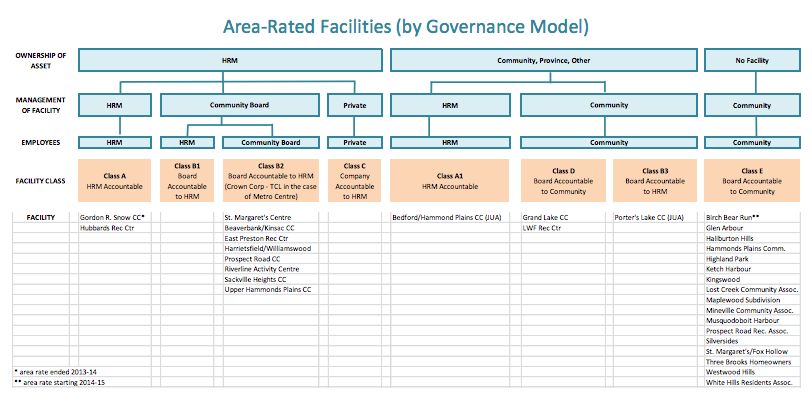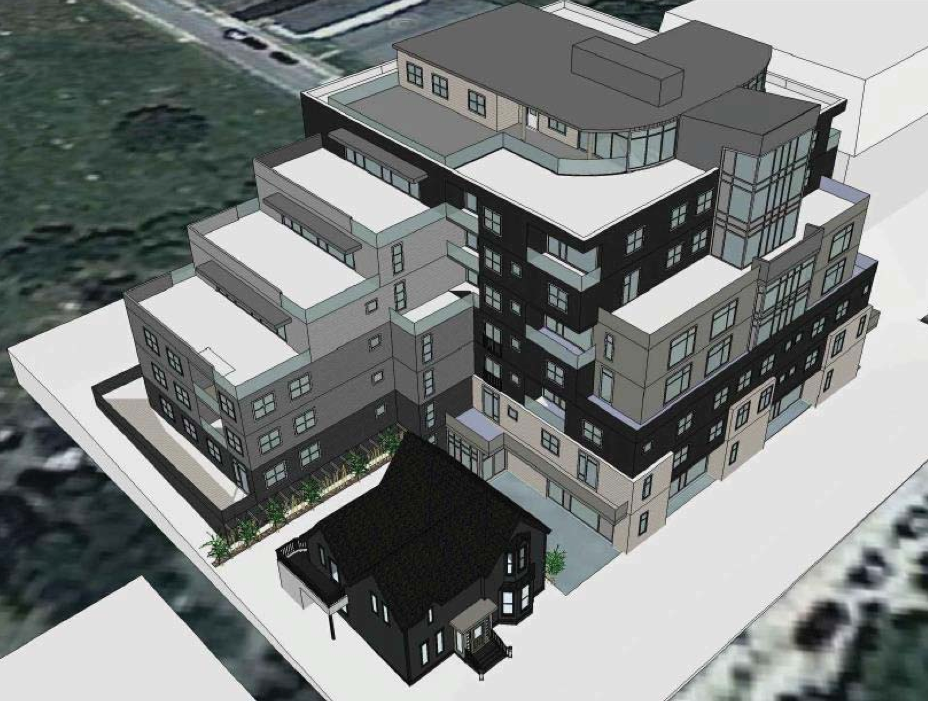"The councillor's heart is in the right place. I think this isn't the spot for action.” —Darren Fisher
"I wasn't part of what happened in the past. I am part of what this council does in the future.” —Steve Craig
”Was that something we discussed while I was out?” —Mayor Savage
NEW YEAR’S RESOLUTIONS
A lengthy committee of the whole meeting took up most of yesterday’s Regional Council meeting, as the city tried to agree on its Christmas wish list. Staff wanted HRM’s “priority outcomes” confirmed for the next planning cycle so the heavy lifting on preparing the next budget could get started. To some degree, this is a perfunctory task. The priority outcomes largely “remain unchanged year over year.” The outcomes for many are also wildly general. One simply dreams of a day where “HRM citizens and visitors are safe where they live, work and play." Staff presenters whipped through the mammoth report’s vague ideas, which caused no small amount of discussion amongst councillors in attendance. David Hendsbee felt the topics went by too quickly, and hoped for more lengthy discussions on the priority items (which will happen in a month during budget talks).
"Do you have a question specifically for anybody?” mayor Mike Savage asked a soliloquizing Hendsbee.
Since there wasn’t much on the actual agenda for the day, it was as good a time as any for the remaining councillors to stump for particular pet projects they’d like to see get more attention in coming months. Barry Dalrymple was worried about gyms not being open late enough (“You drive by them far, far, far too often and they're sitting in the dark”), Steve Craig wanted more follow-up to 311 calls, Waye Mason wanted the list amended to specifically mention the inclusion of the elderly and those with disabilities, and Gloria McCluskey wanted to look at crosswalk safety (only hours before another pedestrian was struck in a downtown crosswalk). Reg Rankin rightfully took issue with what he called the “cultural trend” of using words like “engagement” instead of actually delivering concrete results.
Thankfully, there are some tangible outcomes coming next year that should prove exciting, including the development of the Cogswell Implementation Strategy. HRM will also look to begin webcasting standing committee meetings, which is long overdue. You can read all the other exciting toys HRM hopes to play with here.
SHIPPING OFF TO BOSTON
Mayor Savage excused himself from the committee to join premier Stephen McNeil and the assembled masses in sacrificing a virginal Nova Scotian resource to our American overlords. The Stanfields played. There was free cider ’n sausages.
TAX ATTACK
Next, the committee of the whole delved into area-rate taxation versus general rates. A very, very basic explanation here would be that the boundary between suburban/rural tax areas has become increasingly muddy and taxation for recreational facilities hasn’t changed since 1997. How the city manages those facilities is also looney tunes.
The result has been an “inconsistent and confusing” tax structure for these facilities, where some areas end up paying twice for the same rec centre. Staff suggested simplifying the definitions of “municipal,” “community” and “private” facilities and subsequently approve new taxation rules for them. This would, in practice, eliminate ten area rates and reduce tax bills in their respective areas. The 30,000 or so homes affected would pay around $34 less, while some suburban and urban homeowners would pay about $8 more. It would also eliminate any functional difference between suburban and rural tax boundaries.
Waye Mason “cautiously” approved the new tax definitions, despite the increase in taxes for his district’s residents. He did warn that by removing the area rate, rural residents could find their projects on the back burner.
“Everybody’s in the same queue for services,” Mason said. “I’m not convinced everyone in the rural areas are ready for that.”
Tim Outhit told HRM it was time to grow up and have this discussion, while others like Brad Johns and Barry Dalrymple simply expressed continual concerns about overtaxed rural/suburban residents facing fewer services. Finally, big poppa Hendsbee chimed in.
“Hallelujah, the day has finally come," Hendsbee said, adding now the city could finally correct "the errors of the past.”
“It’s a watershed moment.”
The new rules passed unanimously, but will still need to be worked through during budget season. The city has about $8 million in debt remaining from their area-rated recreational facilities.
PROTEST TOO MUCH
Remuneration for mayors and councillors came up twice yesterday, as a housekeeping matter was hijacked to revise how the city will determine its elected officials’ pay.
In 2011, council voted to keep the current system, where salaries are calculated from a “universe” of “comparative” municipalities across Canada (including "similar" cities like Winnipeg and Vancouver). A major guidelines was that the compensation never be the highest or lowest in that universe, and that it provides a level of payment “which is neither an encouragement nor a deterrent to those seeking public office.” But in once again agreeing to that formula, the city forgot to clean up some typos (such as capitalizing “deputy mayor”) so the issue came back up yesterday. Which presented an opportunity for Steve Craig to try and flip the switch, as he had unsuccessfully attempted last year.
“In principle elected officials ought not to determine the ways and means of setting their own renumeration,” Craig wrote. “However the independent process that enables this does require elected officials to establish a process that is open, transparent and seen without political interference.”
Craig wanted an independent committee, selected by the auditor general, to review council’s pay and report back with recommendations every four years, on the year before an election. The idea proved controversial, with some heated words exchanged between the councillors around to vote on this in 2011, and those newly elected in 2012.
“What is it about this formula is there an issue with?” asked Linda Mosher. “Please help me understand what this issue is about…I’m sick of discussing our pay. We should be discussing policy.”
Waye Mason argued it’s good public policy to review this pay every so often, noting that the CAO and half the council that voted on this formula aren’t here anymore.
“Not having a discussion about this is making a decision,” Mason said. “You’re still making a decision to just let it ride.”
“Show me the problem,” implored Reg Rankin, later calling it “an insult” to what council previously approved. “What are you going to get, bishops, popes? A shaft of light from heaven?”
“You didn’t come into this job for any money. You did it for the community,” Russell Walker hoped about his fellow councillors.
David Hendsbee surprisingly broke from Council Classic to side with New Council, pointing out a regular four-year review makes sense.
Some councillors seemed to think bringing up payment at all made procedures look shady, and would only lead to guff from the public and media. Which, fine, people will always talk. But having councillors so emphatically not want to discuss the issue comes off just as strange.
“The reality is, new people come to sit around this council every four years,” and their perspectives matter, said Jennifer Watts. “This may not pass here today, but I don’t think this debate is wrong.”
In a close vote, Craig’s motion passed nine to seven. Councillors, at least for right now, earn $78,776 annually. The mayor makes close to $163,000 per year.
POCKET CHANGE
Council awarded $15,000 to Dalhousie’s cities and environment unit to basically help install some new “bicycle parking” around the university. The work plan proposed will “deliver more than just an implementation protocol, but will develop a sense of stewardship and pride amongst participants through branding and marketing.”
— — —
Dartmouth’s former City Hall, now abandoned, was sold to Fares & Co. Development for an undisclosed amount. The property was listed at $2.6 million, and HRM received multiple offers according to a staff report. Fares is apparently still making up his mind what will go on the Alderney Drive site.
— — —
Council wants an update on the creation of the city’s graffiti abatement internal stakeholder group, which was voted for back in 2012. Currently, many business units are involved in graffiti removal, enforcement and prevention, “However, there is no coordinated approach nor is anyone overseeing the plan."
— — —
Boris Holdings finally got approval to build a $10-million, 50 unit luxury condo building at 99 Ochterloney Street after lot BH-2 was deregistered as a heritage property. The developer has been stymied for years due to the heritage status of Henry Elliott House and the gravel parking lot behind it. The new plans, as approved by council after a brief public hearing last night, will preserve Henry Elliott House by virtually surrounding it with the Lotus Point Living structure. It kinda looks weird.
Overall grade: B


















